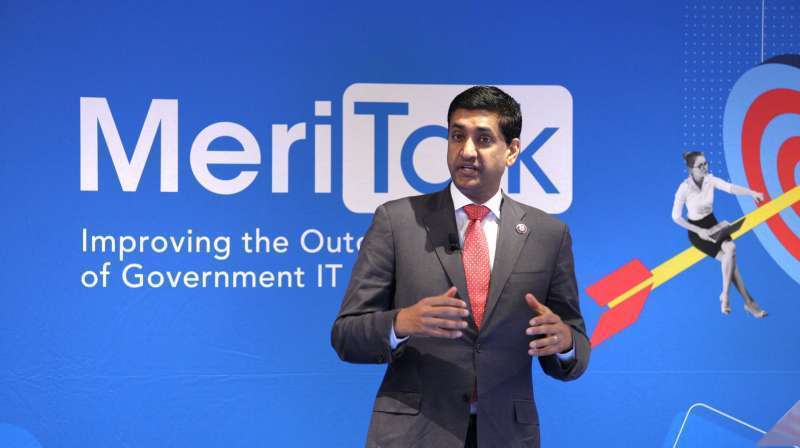
Rep. Ro Khanna, D-Calif., is working on legislation for next year that would create a chief design officer for the Federal government, he said today at MeriTalk’s “New & Next: The Government Tech Renaissance,” event in Washington, D.C.
The congressman explained that the Federal government needs to center its design on the consumer, and figure out how to make every interaction with the government more enjoyable.
“This is why I’ve been working on legislation for next year on having a chief design officer in the United States,” Rep. Khanna said. “Someone who’s going to look at what can we do to have all of the government agencies have design where the consumer experience is center, where we’re thinking about what do American citizens – or other people using government – need?”
“How do we make it easy for them? And how do we empower the technologists to actually make decisions, because it’s not just to have the resources and the design,” he continued. “It’s to make sure that people in this room and others are empowered in the agencies to actually lead and make decisions.”
Rep. Khanna said the chief design officer legislation will build upon other efforts in Congress, such as his work with Rep. Gerry Connolly, D-Va., chairman of the House Government Operations Subcommittee, on FITARA scores.
Rep. Khanna, who is a member of the House Government Operations Subcommittee, said the two have been working on moving the FITARA scores “towards the direction of prioritizing the consumer.” The committee appears to be on track to release the next FITARA Scorecard soon.
“Ultimately, I think having a chief design officer will really help make government more accessible to people,” Rep. Khanna said. “And this is something that then may get people more confident in their government.”
The “compliment” to having a chief design officer, he added, is ensuring the Federal government has strong security.
Rep. Khanna said he is hopeful his Quantum Computing Cybersecurity Preparedness Act, which he introduced with Rep. Nancy Mace, R-S.C., will pass the Senate this week. The bill passed the House in July.
That bill, he said, would be “the first bill that’s going to have the United States be forward looking in anticipation of quantum and our security there.”
